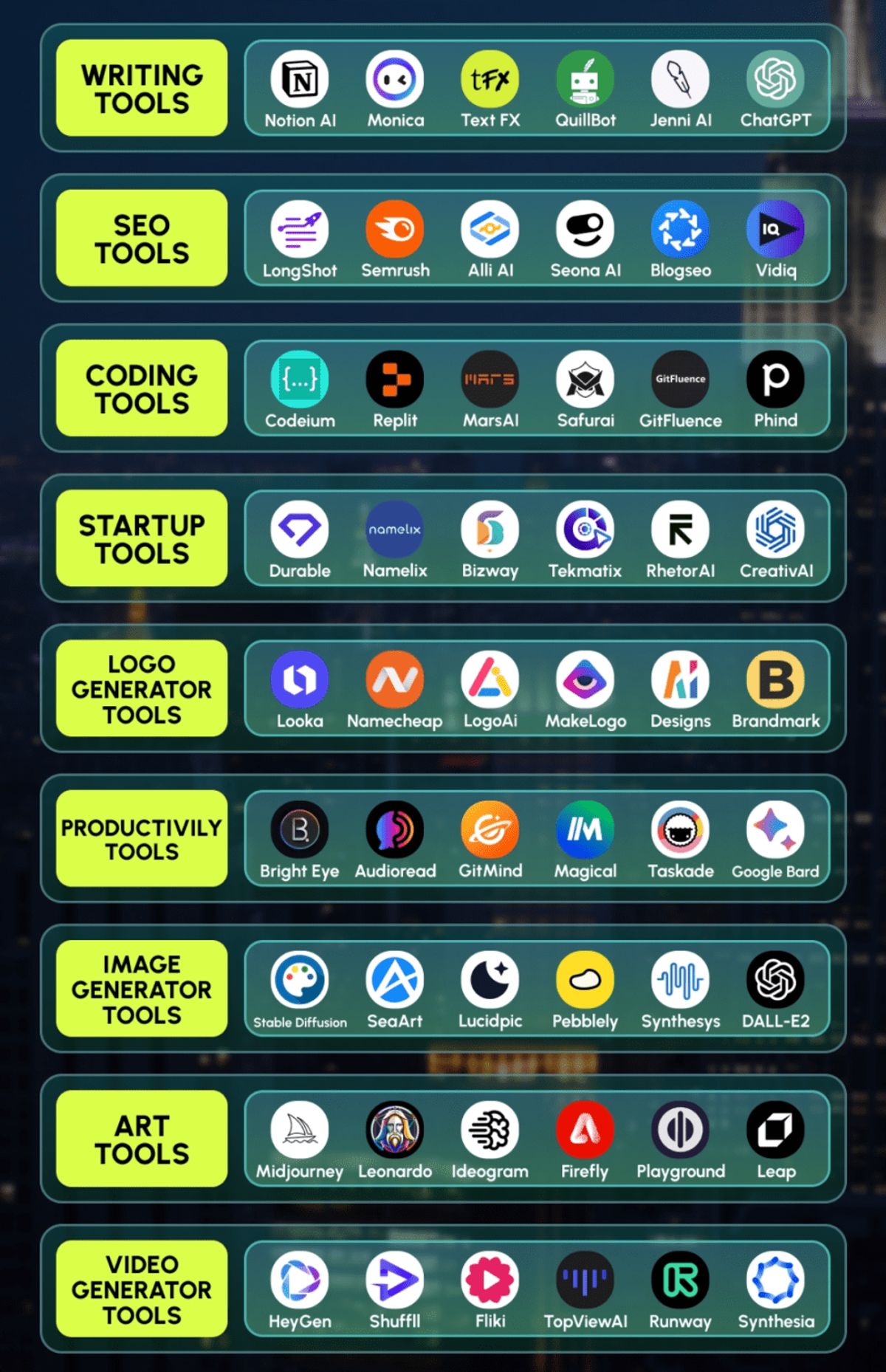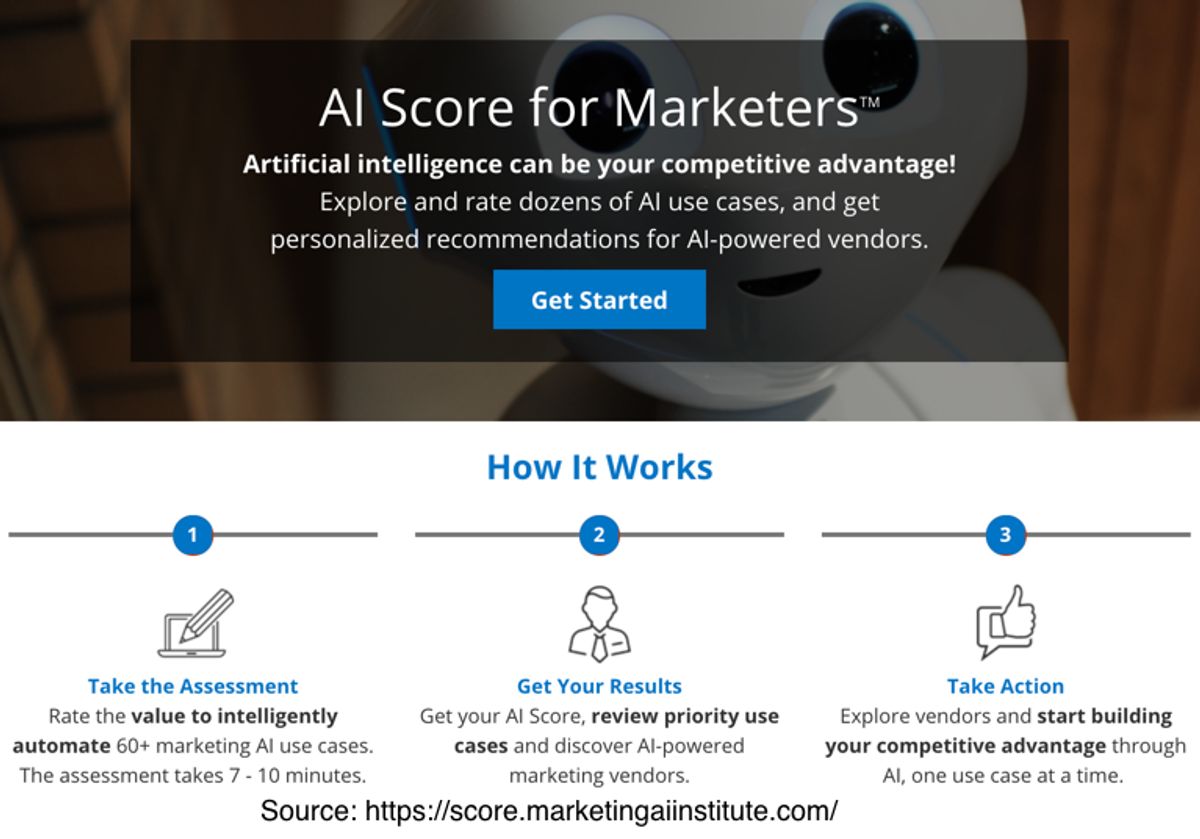In an era where digital transformation is paramount, the role of Artificial Intelligence (AI) in reshaping the landscape of digital marketing is undeniably significant. This article explores the integration of AI technologies in digital marketing, highlighting the paradigm shift towards more intelligent, efficient, and personalized marketing practices. We delve into the ways AI is revolutionizing marketing strategies, enhancing consumer engagement, and restructuring business models, offering insights from recent studies and expert analyses to illustrate this multifaceted impact.
Key Takeaways
- AI technologies are creating a paradigm shift in digital marketing, leading to more intelligent, efficient, and personalized marketing tactics.
- Personalized consumer engagement is enhanced through AI-powered tools like chatbots and virtual assistants, which improve the customer journey.
- Business structures are evolving with AI, enabling precision targeting and increased marketing efficiency through data-driven decision making.
- AI's integration with consumer psychology is building digital trust and loyalty, crucial for maintaining long-term customer relationships online.
- Ethical considerations and consumer privacy are at the forefront of AI-driven marketing, necessitating transparent and responsible AI governance.
Revolutionizing Marketing Strategies with AI

The Paradigm Shift in Digital Marketing
The integration of Artificial Intelligence (AI) into digital marketing is not just a fleeting trend; it's a fundamental shift that is reshaping the industry. This shift is characterized by a move towards more intelligent, efficient, and personalized marketing practices. AI's ability to analyze vast amounts of data and provide actionable insights is revolutionizing the way marketers approach campaigns and engage with consumers.
- AI-driven analytics for deeper consumer insights
- Automated content creation and curation
- Enhanced targeting and personalization
- Predictive customer behavior modeling
The infusion of AI in digital marketing represents a paradigm shift towards more intelligent, efficient, and personalized marketing practices.
For marketers, the advent of AI presents both a challenge and an opportunity. The challenge lies in harnessing AI's power responsibly and creatively. The opportunity is to transform the digital marketing landscape, making it more dynamic and responsive to consumer needs. As we delve deeper into the impact of AI, it becomes clear that this technology is not just revolutionizing marketing strategies but also enhancing consumer engagements and restructuring business models for a smarter marketing future.
Case Studies: AI's Impact on Marketing Tactics
The integration of Artificial Intelligence (AI) into digital marketing has not only been a trend but a fundamental shift in the industry. AI's ability to analyze vast datasets has revolutionized precision targeting and marketing efficiency, as highlighted in the study by S. Ekasari, L. Judijanto, and AY. Vandika.
The infusion of AI in digital marketing represents a paradigm shift towards more intelligent, efficient, and personalized marketing practices.
Several case studies have demonstrated the transformative power of AI in marketing:
- AI-driven analytics have enabled marketers to understand consumer behavior at an unprecedented level.
- Machine Learning algorithms have optimized ad placements, resulting in higher conversion rates.
- Predictive analytics have been used to forecast consumer trends and adjust marketing strategies accordingly.
These examples underscore the importance of AI in crafting marketing tactics that are not only effective but also adaptable to the ever-changing digital landscape.
Future-Proofing Marketing with AI Innovations
As the digital landscape evolves, marketers must adapt to stay ahead. AI innovations offer a roadmap for future-proofing marketing strategies, ensuring businesses remain competitive and relevant. By leveraging AI, companies can unlock new growth opportunities and expand their market reach, tailoring their approach to meet the ever-changing consumer demands.
- Examine the role of AI in unlocking new growth opportunities
- Discuss how AI-powered solutions can personalize customer experiences
The key to longevity in the digital marketplace is the continuous adaptation and integration of AI into marketing practices.
AI not only personalizes customer experiences but also streamlines marketing operations, making them more efficient and cost-effective. The adoption of AI-driven analytics and automation tools is crucial for businesses aiming to maintain a sustainable competitive advantage in a rapidly changing environment.
Enhancing Consumer Engagement with AI

Personalization: The Heart of Digital Interaction
In the realm of digital marketing, personalization is not just a trend; it's a fundamental shift in how brands interact with their customers. AI has ushered in an era where personalized experiences are the norm, not the exception. By analyzing data and identifying patterns, AI enables businesses to deliver content and offers that are tailored to individual preferences and behaviors.
The true power of AI-driven personalization lies in its ability to transform a generic customer journey into a unique and memorable experience.
For instance, predictive personalization uses AI algorithms to anticipate customer needs before they even arise. This proactive approach can significantly enhance customer satisfaction and loyalty. Consider the following benefits of AI-driven personalization:
- Predictive Personalization: Anticipating future needs and preferences.
- Real-time Interaction: Engaging with customers at the right moment.
- Tailored Recommendations: Providing relevant suggestions to enhance the shopping experience.
As we continue to navigate the digital landscape, the challenge for marketers is to leverage AI in a way that feels genuine and maintains the human touch. Personalization, when done right, can create a bridge between technology and the personal connections that are at the heart of every brand-consumer relationship.
AI-Powered Tools: Chatbots and Virtual Assistants
In the realm of digital marketing, AI-powered tools like chatbots and virtual assistants are becoming indispensable for enhancing consumer engagement. These tools are transforming the way brands interact with customers, offering 24/7 support and providing instant, personalized responses to inquiries. The ability to analyze customer data and learn from interactions enables these AI applications to deliver a more intuitive and satisfying user experience.
- Chatbots can handle a multitude of customer service tasks, from answering FAQs to processing orders.
- Virtual assistants are increasingly sophisticated, capable of conducting natural language conversations and executing complex tasks.
- Both technologies contribute to a seamless customer journey, reducing wait times and improving overall satisfaction.
By leveraging AI-powered tools, businesses are not only optimizing their customer service operations but also gathering valuable insights that can inform future marketing strategies. The continuous learning process inherent in AI allows for the constant refinement of customer interactions, ensuring that each touchpoint is an opportunity to strengthen the customer-brand relationship.
The integration of chatbots and virtual assistants into digital marketing strategies is not just a passing trend but a strategic move towards building a more responsive and customer-centric business model.
Elevating the Customer Journey with AI
The integration of AI into digital marketing has transformed the customer journey into a more intuitive and engaging experience. AI's predictive capabilities allow for a nuanced understanding of consumer behavior, leading to more effective and timely interactions. By analyzing vast amounts of data, AI helps in crafting personalized messages that resonate with individual customers at every touchpoint.
- Real-time communication: AI tools provide immediate responses to customer inquiries, ensuring a seamless flow of conversation.
- Tailored recommendations: Based on customer data, AI generates suggestions that are highly relevant to each user's preferences and behaviors.
- Automated marketing tasks: From email campaigns to social media posts, AI streamlines the execution of repetitive marketing activities.
The goal is to create a customer journey so fluid and responsive that it feels uniquely personal to each user. This not only enhances the customer experience but also builds a stronger brand-customer relationship.
The continuous evolution of AI tools in digital marketing is a testament to their effectiveness in engaging customers. Marketers must remain agile, adapting to new AI advancements to keep the customer journey at the forefront of their strategy.
The Evolution of Business Structures

AI in Precision Targeting and Marketing Efficiency
The integration of AI into digital marketing has transformed the landscape, offering unprecedented precision in targeting and efficiency in campaign execution. By analyzing vast datasets, AI enables marketers to understand and predict consumer behavior with remarkable accuracy.
- Precision Marketing: Transcending traditional segmentation, AI utilizes machine learning to craft messages that resonate on an individual level.
- Data Analysis: Deep learning algorithms sift through data, identifying patterns and insights that drive strategic decisions.
- Campaign Optimization: Real-time adjustments to marketing campaigns are made possible through AI's predictive capabilities, ensuring maximum impact.
The synergy between AI and marketing not only streamlines operations but also elevates the customer experience, making every interaction more relevant and engaging.
As we continue to witness the evolution of marketing strategies, it's clear that AI is not just a tool but a game-changer, redefining the very essence of how we connect with consumers.
Data-Driven Decision Making with AI
The integration of AI into the realm of digital marketing has ushered in an era of data-driven decision making, where insights gleaned from big data are not just valuable, they are pivotal to success. AI's ability to process and analyze large datasets has transformed the approach to marketing campaigns, making them more targeted and effective.
- AI algorithms can predict consumer behavior.
- Machine learning models identify patterns and trends.
- Real-time analytics inform immediate strategic adjustments.
By leveraging AI, businesses gain a competitive edge through enhanced understanding of customer preferences and market dynamics. This leads to smarter, more informed decisions that can significantly impact the bottom line.
The benefits of AI-driven analytics are clear, as they enable marketers to optimize their strategies in ways previously unimaginable. With AI, the guesswork is removed, and marketing becomes a precision tool tailored to the unique contours of the consumer landscape.
Adapting Business Models to AI Advancements
The integration of AI into business models is not just a trend; it's a strategic imperative that enables companies to remain competitive in a rapidly evolving market. Businesses are increasingly leveraging AI to streamline operations, enhance decision-making, and foster innovation. This shift towards AI-driven business models is characterized by a transition from traditional, hierarchical structures to more fluid, adaptable ones.
- Agility and Responsiveness: AI empowers businesses to quickly adapt to market changes and customer needs.
- Data-Driven Strategies: Leveraging big data analytics, AI provides actionable insights for strategic planning.
- Customer-Centric Approaches: AI tools help tailor products and services to individual customer preferences.
- Operational Efficiency: Automation of routine tasks frees up resources for more complex, value-adding activities.
The advancements will redefine business models, strategies, and the very nature of competition. As AI continues to evolve, it offers businesses endless growth opportunities, demanding a proactive approach to integrating these technologies.
Building Trust and Loyalty Online

The Intersection of AI and Consumer Psychology
The integration of AI into digital marketing has opened new avenues for understanding and influencing consumer behavior. By analyzing vast amounts of data, AI can uncover patterns and preferences that were previously inaccessible, allowing marketers to tailor their strategies with unprecedented precision.
- AI-driven analytics provide deep insights into consumer habits.
- Predictive algorithms can forecast future buying behaviors.
- Emotional AI technologies gauge consumer sentiment, enhancing engagement.
The synergy between AI and consumer psychology is not just about data analysis; it's about crafting experiences that resonate on a personal level. This approach not only improves the effectiveness of marketing campaigns but also fosters a sense of connection between the brand and the consumer.
As AI continues to evolve, the potential for even more nuanced understanding of consumer psychology grows. Marketers who leverage AI effectively can create a competitive edge by aligning their offerings with the psychological needs and desires of their customers.
Fostering Digital Trust through AI
In the realm of digital marketing, trust is the cornerstone of customer relationships. AI has the potential to strengthen this trust by providing consistent, personalized experiences that resonate with consumers. By analyzing customer data, AI can identify patterns and preferences, enabling brands to tailor their interactions and foster a sense of reliability and understanding.
The key to fostering digital trust lies in the responsible and creative use of AI, ensuring that personal connections remain at the heart of marketing strategies.
Transparency in AI operations is another critical factor in building digital trust. Customers are more likely to trust brands that are open about how their data is used and how AI systems make decisions. This transparency can be achieved through clear communication and ethical AI practices.
Here are some steps to enhance digital trust through AI:
- Implement clear data usage policies.
- Ensure AI systems are explainable and decisions can be understood by users.
- Regularly update security measures to protect customer data.
- Provide options for customers to control their data and opt-out of AI-driven features if desired.
By integrating these practices, businesses can not only comply with ethical standards but also solidify customer trust, paving the way for long-term loyalty.
Cultivating Online Loyalty with Intelligent Marketing
In the realm of digital marketing, loyalty is the cornerstone of sustained business success. AI-driven marketing tools are pivotal in understanding and predicting customer behaviors, leading to more effective loyalty programs and retention strategies. By analyzing vast amounts of data, AI helps in identifying patterns and preferences, which can be used to tailor experiences and rewards that resonate with individual customers.
The key to longevity in customer relationships lies in the consistent delivery of value and relevance, made possible through AI's analytical prowess.
Leveraging Artificial Intelligence in marketing, as demonstrated by Dynamic, Inc., showcases the potential of AI to not only attract customers but to keep them engaged over time. These insights can help companies understand their online reputation, respond timely to customer complaints or praises, and adjust their marketing strategy accordingly.
- Understand customer preferences
- Tailor rewards and experiences
- Engage customers with relevant content
- Foster a community around the brand
The future of customer loyalty hinges on the ability to merge technological advancements with the human touch. The challenge for marketers is to use AI not just as a tool for efficiency, but as a means to deepen the personal connections that are fundamental to brand loyalty.
Ethics and Responsibility in AI-Driven Marketing

Navigating Consumer Privacy in the Age of AI
In the digital era, consumer privacy has become a pivotal concern, especially as AI-driven marketing strategies become more prevalent. Companies must navigate the delicate balance between leveraging consumer data for personalization and maintaining the privacy of their users.
- Transparency in data collection and usage is essential.
- Consent should be obtained through clear and understandable terms.
- Data minimization principles ought to be applied, collecting only what is necessary.
- Security measures must be robust to protect consumer data from breaches.
The commitment to consumer privacy is not just a legal obligation but a cornerstone of brand integrity and customer trust. As AI continues to reshape marketing, the brands that prioritize privacy will differentiate themselves in a crowded digital landscape.
The implementation of privacy-preserving techniques such as differential privacy and federated learning can help mitigate risks. Moreover, the development of privacy-centric AI models ensures that consumer insights are gleaned without compromising individual privacy.
AI Governance and Ethical Frameworks
In the realm of digital marketing, the integration of AI demands a robust governance model to ensure ethical practices. The governance framework balances technical efficacy, data integrity, user privacy, and societal impacts, emphasizing the need for AI systems to be transparent. This balance is not just a regulatory requirement but a cornerstone of consumer trust.
The dialogue around AI governance and ethical frameworks is gaining momentum, with a focus on transparency, accountability, and respect for consumer rights in the AI era.
To operationalize these principles, organizations are adopting various measures:
Balancing Innovation with Consumer Rights
In the quest to leverage AI for more effective digital marketing, balancing innovation with consumer rights emerges as a pivotal challenge. Marketers must navigate the fine line between utilizing AI to deliver cutting-edge experiences and ensuring that consumer rights to privacy and autonomy are not compromised.
- Transparency in how consumer data is used and for what purpose.
- Accountability for AI decisions and the outcomes they drive.
- Respect for the individual's rights, including the right to opt-out of data collection.
The ethical deployment of AI in marketing not only protects consumers but also builds the foundation for long-term trust and loyalty.
As AI continues to reshape the digital marketing landscape, companies must adopt a consumer-centric approach that prioritizes ethical considerations alongside technological advancements. This ensures that the benefits of AI are enjoyed without infringing on the fundamental rights of the consumer.
Conclusion: Embracing AI for Future-Proof Marketing
The integration of Artificial Intelligence into digital marketing is not just a fleeting trend but a transformative movement reshaping the industry. As we have explored, AI's capabilities in enhancing consumer engagement, refining marketing strategies, and evolving business models are invaluable. The studies and insights discussed underscore the significance of AI in achieving precision targeting, building trust and loyalty, and upholding ethical standards. For businesses and marketers, the future is clear: embracing AI with responsibility and creativity is essential for staying competitive and forging meaningful connections with customers. As we continue to navigate the digital landscape, the fusion of AI with marketing practices promises a horizon brimming with innovation and personalized consumer experiences.
Frequently Asked Questions
How is AI revolutionizing digital marketing strategies?
AI is revolutionizing digital marketing by enabling more intelligent, efficient, and personalized marketing practices. It allows for precision targeting, real-time communication, and personalized customer experiences, transforming how brands connect with consumers.
What are some AI-powered tools that enhance consumer engagement?
AI-powered tools such as chatbots and virtual assistants play a significant role in enhancing consumer engagement. They provide real-time assistance, understand and anticipate customer needs, and offer tailored recommendations, elevating the overall customer journey.
In what ways does AI contribute to the evolution of business structures?
AI contributes to the evolution of business structures by enabling precision targeting and improving marketing efficiency. It helps in analyzing vast datasets for better decision-making and optimizing marketing strategies, leading to more effective targeting and business adaptation.
How does AI help in building trust and loyalty online?
AI helps in building trust and loyalty by understanding the psychological underpinnings of consumer behavior and leveraging this knowledge to enhance digital interactions. When combined with psychological principles, AI can significantly increase consumer trust and loyalty.
What are the ethical considerations in AI-driven marketing?
Ethical considerations in AI-driven marketing include consumer privacy, transparency, accountability, and respect for consumer rights. As AI technologies proliferate, the need for ethical frameworks and AI governance to ensure responsible use becomes increasingly important.
How can marketers responsibly harness the power of AI in digital marketing?
Marketers can responsibly harness the power of AI by focusing on creativity, ensuring transparency, adhering to ethical practices, and maintaining personal connections with consumers. The goal is to evolve the digital marketing landscape without compromising consumer trust and privacy.



